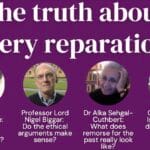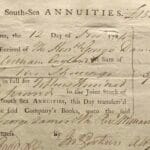The problems with Project Spire: presentations
Is the Church Commissioners’ proposal for a ‘reparations’ fund (Project Spire) for ‘Justice, Healing, and Repair’ based on historical facts? Will it ‘repair’, or in fact divide us further? Is there a clear ethical argument, and have they followed clear and transparent processes in proposing this? The two videos here comprises four addresses given at … Continue Reading




























